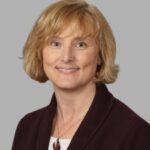
Assessment and Intervention for Childhood Apraxia of Speech
- Prof. Dr. Heather M. Clark, Ph.D. CCC-SLP BC-ANCDS
- 23/09/2020 10:00
- CERTIFICATE
- tr, en
- Live Seminars
Please fill the form below and reach DiLGEM specialists to have more information on this seminar and reserve your seat for the next event.
| # | Date | Content | Duration |
|---|---|---|---|
| 1 | Çocukluk Çağı Konuşma Apraksisi Değerlendirme ve Terapisi İkinci Gün 24/10/2020 19.00-23.00 |
Speech sound disorders in children are common, yet assessment and management of these communication disorders can be challenging, particularly when motor speech impairments are contributing to the larger clinical picture. This course will equip speech clinicians to characterize the relative contribution of phonologic, articulatory, and/or motor speech impairment to a child’s speech sound disorder. This course will further explore in detail methods for managing childhood apraxia of speech. Many clinical examples will be presented and discussion encouraged.
Instructional Methodologies
- Lecture
- Video examples
- Guided discussion
- Case reviews
Prof. Dr. Heather M. Clark, Ph.D. CCC-SLP BC-ANCDS
Dr. Heather Clark is chair of the Division of Speech Pathology and Associate Professor in the College of Medicine at the Mayo Clinic in the United States. Her work with childhood apraxia of speech has been strongly influenced by her mentor, Dr. Edy Strand and her colleagues Dr. Ruth Stoeckel and Ms. Becky Baas. In her role as Consultant at Mayo Clinic, she has the opportunity to assess children and adults from across the U.S. and the world, seeking to better understand the relative contribution of language, learning, and motor speech impairments to a patient’s communication impairments. She has published and presented dozens of articles, book chapters, conference abstracts, university and advanced courses on pediatric motor speech disorders. She is an award-winning researcher and teacher, fellow of the American Speech-Language-Hearing Association, and grandmother to Valya, a very sweet bilingual toddler.
Course Outcomes
The participants who take this course will be able to:- Compare and contrast major categories of speech sound disorders
- Describe assessment procedures and interpret observations gleaned during the assessment
- Demonstrate beginning skill in the differential diagnosis of speech sound disorders
- Discuss factors that influence decision making in intervention for childhood apraxia of speech
Program Flow
Session 1: Foundational concepts
- Defining phonology, articulation, and motor speech
- Reviewing theories and frameworks that inform clinical decision making
Session 2: Assessment
- Purposes: differential diagnosis, treatment planning, outcome assessment
- Tools and methods: purposes and limitations of standardized instruments, need for and advantages of skilled perceptual judgments, integrating information for sound clinical decision making
Session 3: Treatment Part 1
Session 4: Treatment Part 2

